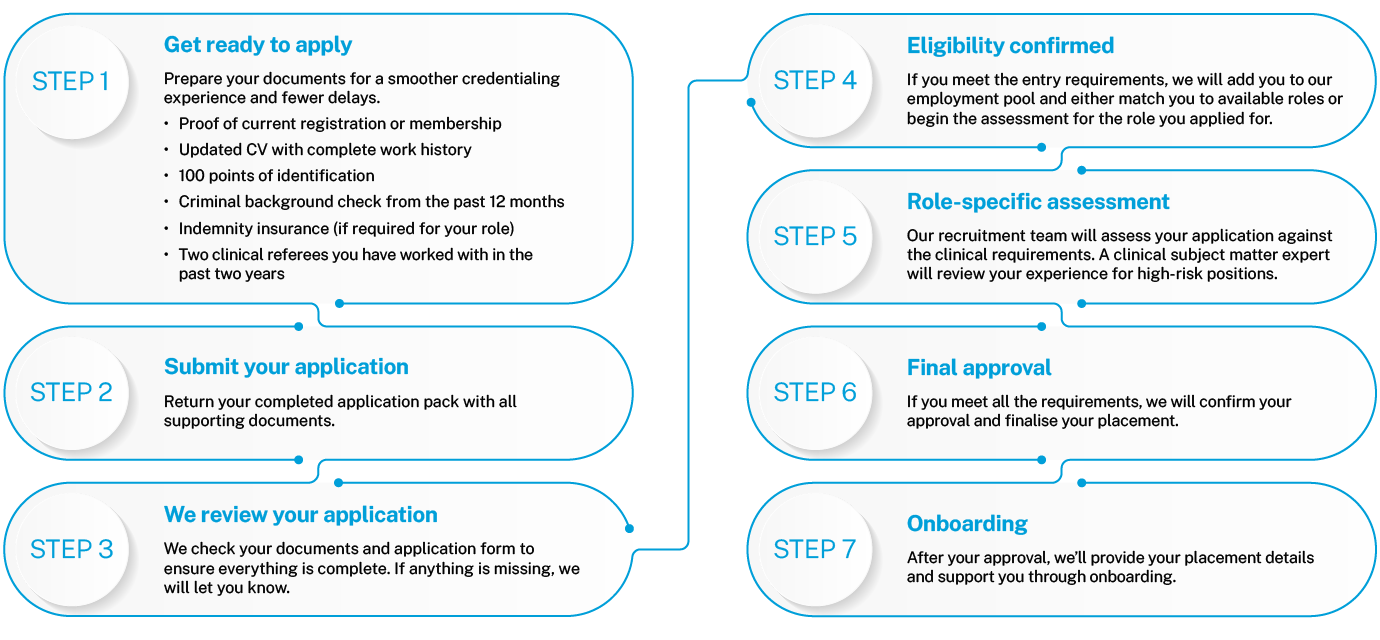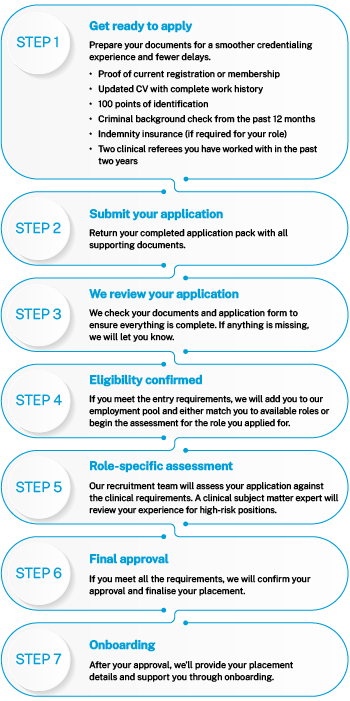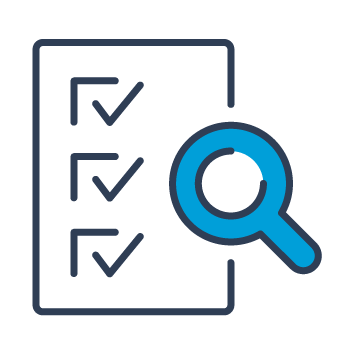
Credentialing and eligibility for clinicians
Understand Aspen Medical’s credentialing and eligibility process for clinical roles. Learn what’s required and how to get started.
How to apply


Frequently asked questions
You’ll begin the credentialing process after applying for a role with Aspen Medical. This is the first step in confirming your eligibility. Once you’ve submitted your application pack and supporting documents, we’ll review them to ensure you meet the entry requirements. If successful, you’ll move to the next stage, where your application is assessed against the clinical requirements of the role. This may include additional documentation and approval of your credentialing by a clinical subject matter expert.
If you want to be considered for future roles without applying for a specific position, you can choose to complete credentialing by joining our talent community. Once accepted, you’ll be added to our employment pool and considered first for upcoming opportunities.
Yes, there are different levels of credentialing depending on the complexity and risk of the role. General roles, such as those in primary care or residential health, usually only require standard verification of baseline documentation. Higher-risk roles, such as those in infectious disease response, aviation, remote or emergency healthcare, may require additional documentation, including proof of clinical hours and formal approval by a clinical subject matter expert. This ensures the credentialing process matches the level of clinical responsibility involved.
Credentialing is valid for up to three years. During that time, you may need to update specific documents such as immunisation records, continuing professional development or police checks, depending on the role and region. All clinicians are required to complete re-credentialing every three years to maintain eligibility for employment and future roles.
Yes. Once you are credentialed, you can be considered for multiple Aspen Medical projects. Your credentialing record is securely stored and reviewed when new roles become available. Depending on the project, you may be asked to provide updated documents such as a recent police check, immunisation records or training relevant to that placement, but you will not need to repeat the full credentialing process.
You can start the credentialing process even if some documents are still pending. However, your application will not progress until all required documents have been received. If anything is missing or incorrect, our team will notify you through the platform and provide clear instructions on what needs to be updated. Submitting your documentation as promptly and accurately as possible will help avoid delays in the process.
You are required to inform us immediately if your registration status changes, including suspension, expiration or any new conditions. For Australian clinicians, we receive real-time updates through AHPRA’s monitoring system. For international clinicians, changes are monitored where possible through local regulators, but self-reporting remains essential. Maintaining current and unrestricted registration is a condition of working with Aspen Medical.
Yes. All information submitted during credentialing is stored securely and managed in line with the Australian Privacy Act 1988. Aspen Medical uses a secure credentialing platform to handle your documentation and personal information. Only authorised personnel involved in the recruitment and credentialing process have access to your data.
Yes. If you previously worked with Aspen Medical and want to apply for a new role, you will need to complete credentialing again if your previous credentialing has expired. Credentialing is valid for three years. If your credentialing is still current, you may only need to provide additional documentation to meet the credentialing requirements of the new role.

Join a team of healthcare experts








